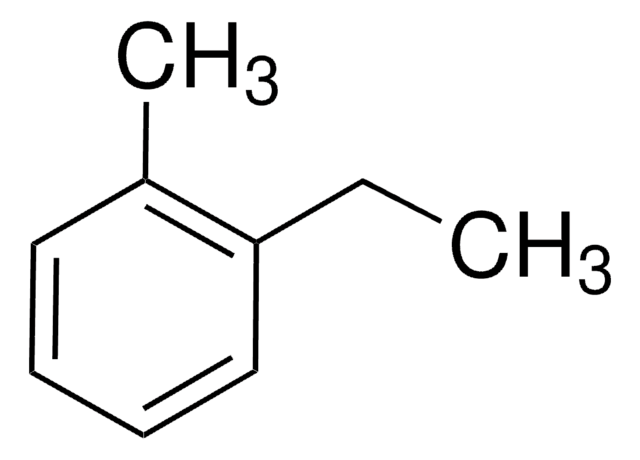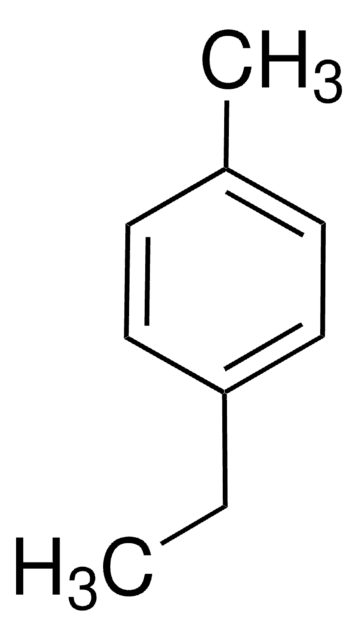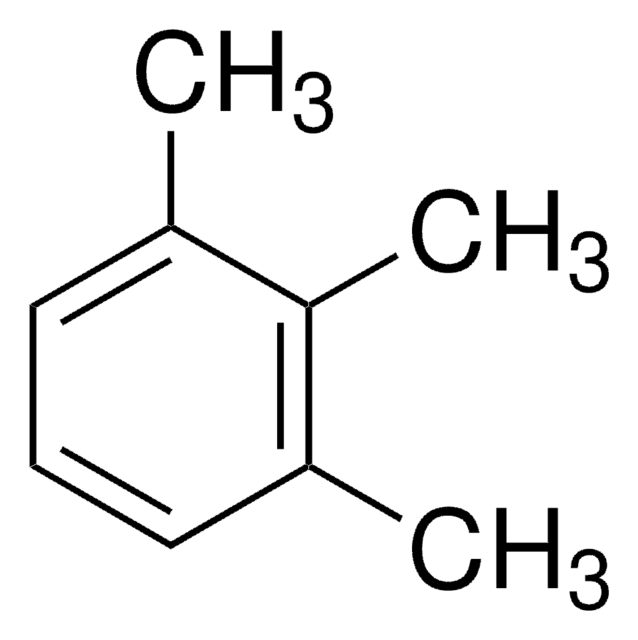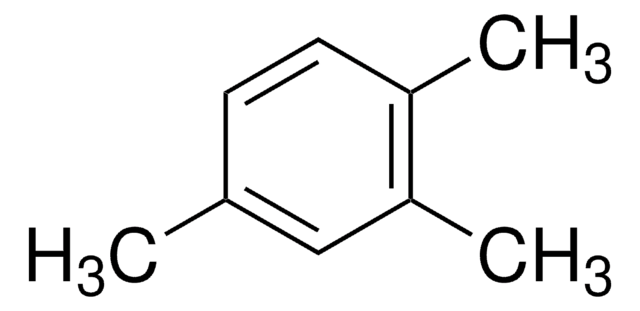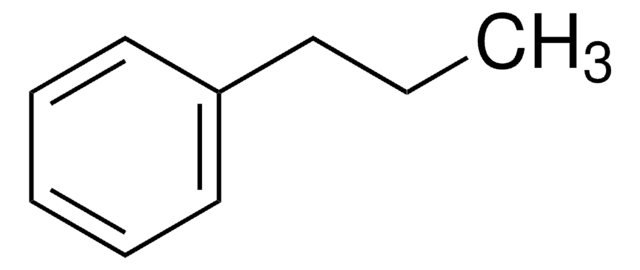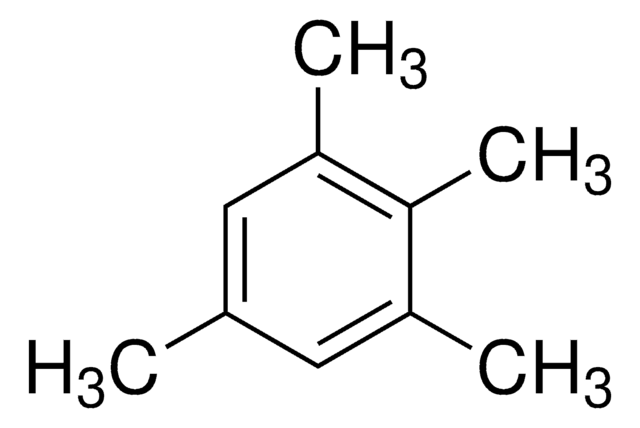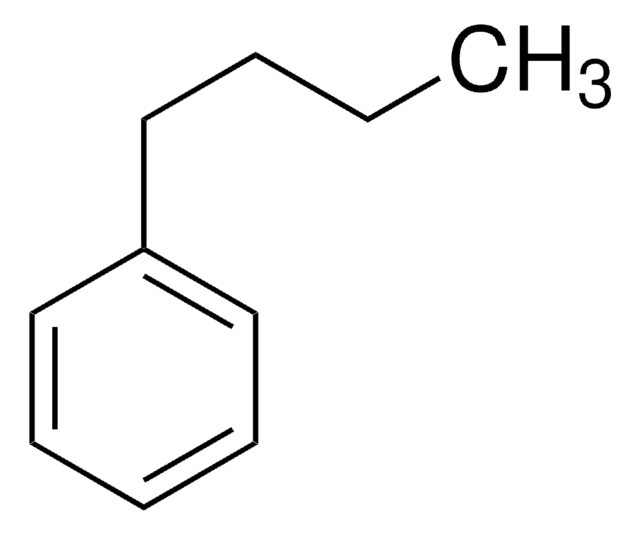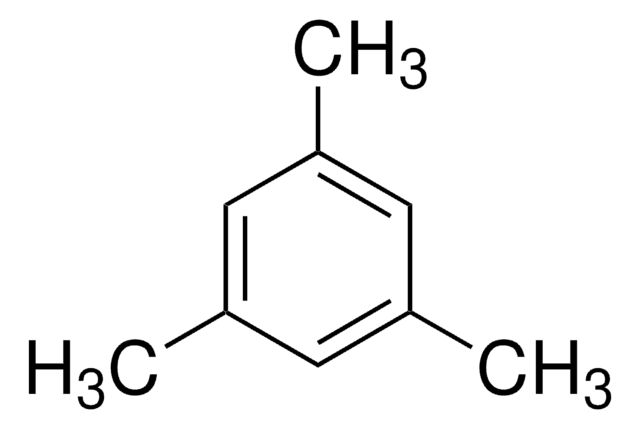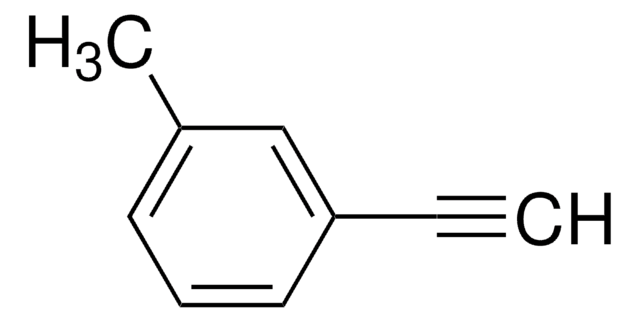E49606
3-Ethyltoluene
99%
Synonym(s):
1-Ethyl-3-methylbenzene
Sign Into View Organizational & Contract Pricing
All Photos(1)
About This Item
Linear Formula:
C2H5C6H4CH3
CAS Number:
Molecular Weight:
120.19
Beilstein:
1850821
EC Number:
MDL number:
UNSPSC Code:
12352100
PubChem Substance ID:
NACRES:
NA.22
Recommended Products
Quality Level
Assay
99%
form
liquid
autoignition temp.
896 °F
refractive index
n20/D 1.496 (lit.)
bp
158-159 °C (lit.)
density
0.865 g/mL at 25 °C (lit.)
SMILES string
CCc1cccc(C)c1
InChI
1S/C9H12/c1-3-9-6-4-5-8(2)7-9/h4-7H,3H2,1-2H3
InChI key
ZLCSFXXPPANWQY-UHFFFAOYSA-N
Looking for similar products? Visit Product Comparison Guide
Application
3-Ethyltoluene is generally used as a model alkylbenzene derivative for bond activation and C(sp3)-H functionalization studies.
Signal Word
Warning
Hazard Statements
Precautionary Statements
Hazard Classifications
Flam. Liq. 3
Storage Class Code
3 - Flammable liquids
WGK
WGK 3
Flash Point(F)
100.4 °F - closed cup
Flash Point(C)
38 °C - closed cup
Personal Protective Equipment
dust mask type N95 (US), Eyeshields, Gloves
Choose from one of the most recent versions:
Already Own This Product?
Find documentation for the products that you have recently purchased in the Document Library.
Customers Also Viewed
A Metal?Free Oxidative Dehydrogenative Diels?Alder Reaction for Selective Functionalization of Alkylbenzenes.
Manna S and Antonchick A P
Chemistry?A European Journal , 23(32), 7825-7829 (2017)
Cu-Facilitated C? O Bond Formation Using N-Hydroxyphthalimide: Efficient and Selective Functionalization of Benzyl and Allylic C? H Bonds.
Lee J M, et al.
Journal of the American Chemical Society, 130(25), 7824-7825 (2008)
Mechanism of C? H Bond Activation of Alkyl-Substituted Benzenes by Cationic Platinum (II) Complexes.
Driver T G, et al.
Organometallics, 24(15), 3644-3654 (2005)
G M Whited et al.
Journal of bacteriology, 166(3), 1028-1039 (1986-06-01)
Pseudomonas putida BG1 was isolated from soil by enrichment with p-toluate and selection for growth with p-xylene. Other hydrocarbons that served as growth substrates were toluene, m-xylene, 3-ethyltoluene, and 1,2,4-trimethylbenzene. The enzymes responsible for growth on these substrates are encoded
Laura Vallecillos et al.
The Science of the total environment, 666, 235-244 (2019-02-25)
This study describes the implementation of a passive sampling-based method followed by thermal desorption gas-chromatography-mass spectrometry (TD-GC-MS) for the monitoring of volatile organic compounds (VOCs) in industrial atmospheres. However, in order to employ passive sampling as a reliable sampling technique
Our team of scientists has experience in all areas of research including Life Science, Material Science, Chemical Synthesis, Chromatography, Analytical and many others.
Contact Technical Service